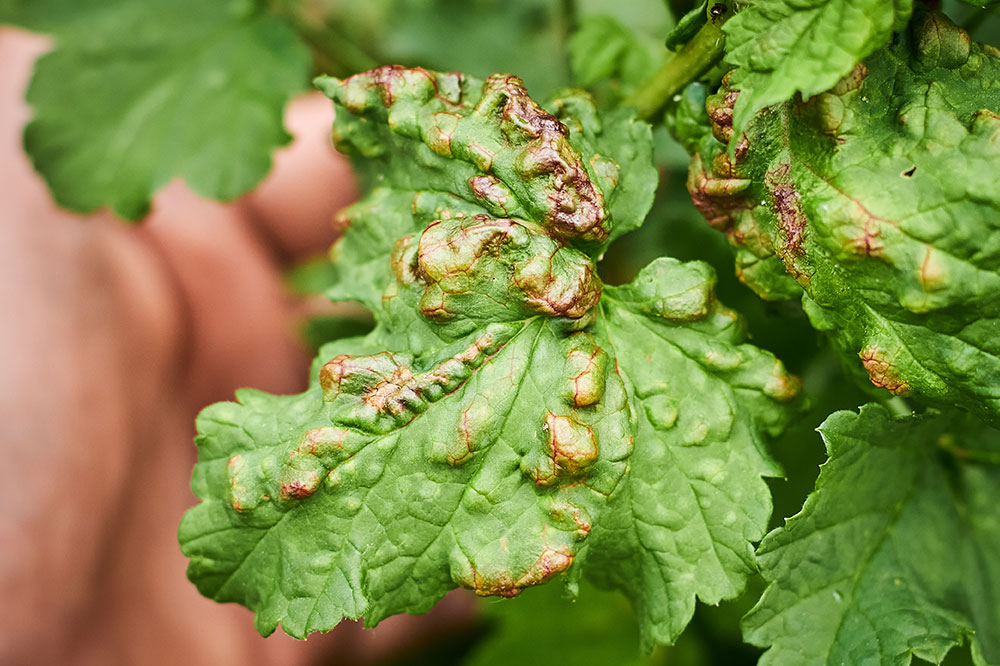Natural Ways to Get Rid of Aphids
Aphids, such as blackflies or greenflies, are tiny insects that feed by sucking sap from plants. Low-to-moderate amounts of aphids in gardens are normal and usually do not cause damage to plants and trees. However, large populations of aphids around your plants can cause the leaves to turn yellow, stunt plant growth, and promote mold fungus growth. That is why looking for natural ways to control aphid growth is important.
How aphid damage looks like
Aphids are tiny creatures that can often be invisible to the naked eye. Different species may appear in different colors: white, black, brown, gray, yellow, light green, or pink.

- Misshapen, curled, stunted, or yellowed leaves
- Honeydew residue that can attract other insects
- Growth of sooty mold, making branches and leaves appear black.
- Deformed or distorted flowers and fruits
- Formation of galls on roots and leaves
- Transmission of viral diseases among different plants
How to prevent aphid growth
To maintain the health of your plants, it is best to prevent aphid and other insect growth. To do so, the following strategies may help:
- Introduce natural predators: Certain insects, such as ladybugs, lacewings, and parasitic wasps, feed on aphids.
Bug-eating birds such as wrens and chickadees may also help keep insect populations under control. Plant a few small trees or shrubs where these birds can build their nests to invite them to your garden.
- To attract beneficial insects: Clover, mint, dill, fennel, and yarrow
- To repel aphid growth: Catnip, garlic, chives, onion, and allium; These plants are especially beneficial when planted near lettuce, peas, and rose bushes
- To trap aphids: Zinnias, dahlias, cosmos, asters, mustard, and nasturtium
Ways to control aphid growth naturally
If aphids have been eating through your garden, several natural remedies can help you control their growth and save your precious plants. Here are a few ways to control aphid growth naturally:
- Spray with water: If the infestation has not fully taken hold, then blasting your plants with a strong stream of water from a hose can help displace the aphids and protect your plants. Once dislodged, they have difficulty finding their way back to the same plant. Although this is the most organic way to eliminate aphids, it may not be the ideal choice for delicate plants.
- Pick them off by hand: You can also remove aphids from your plants. Make sure you put on some gloves before you begin this exercise. Keep a bucket of soapy water by your side to drop the aphids in and kill them. You can also cut or trim off parts of your plant that are highly affected.
- Clean with soap and water: Mix a few tablespoons of pure soap in some water and add this mixture to a spray bottle. Spray this directly on the aphids and the affected parts of the plant, and pay special attention to the underside of the leaves, where the eggs and larvae hide. Since aphids have soft bodies, this homemade aphid control soap dissolves and kills them while keeping your plants and other beneficial insects and pollinators safe. If you want to use something more potent, you can also purchase ready-to-use insecticidal soap.
- Use neem oil: Neem oil contains organic compounds that can help repel aphids and other insects such as mealybugs, cabbage worms, beetles, leafminers, ants, and several other types of insects. However, it can also deter the movement of certain beneficial insects, so it must be used cautiously.
- Use essential oils: Essential oils are associated with strong fragrances, which can also help repel aphids. Use a mix of a few drops of essential oils such as peppermint, clove, rosemary, and thyme. Mix them with water and add this solution to a spray bottle. Spray these directly onto the aphids, their larvae, and eggs.
- Apply diatomaceous earth: Diatomaceous earth is a non-toxic, organic material that can help dehydrate aphids and clear your plants of any infestations. However, it must be sparingly used, as it can also kill any beneficial pollinators (such as bees and butterflies) that come into contact with it. Do not use this substance when flowers are in bloom.
- Use isopropanol: Isopropanol is easily available in stores and can be mixed with water to create a natural aphid control treatment. Do not spray it directly over the whole plant. Instead, spray and wipe down the infected areas. This spray only kills the aphids it comes into contact with, so you may need repeated applications to clear an infestation.

